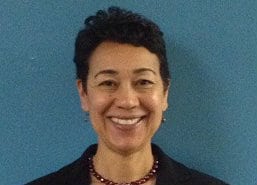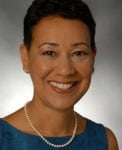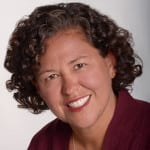This is the fourth blog in our series on Deeper Learning, based on study tours conducted by the American Youth Policy Forum for policymakers.
Policymakers who participated on a recent AYPF study tour to Oakland, California visited two schools that work closely with the communities around them. We observed deeper learning in classrooms when students were challenged to learn, eager to tackle new projects, made connections between their learning and real life, and applied knowledge learned in one subject area or context to new situations.
However, the school would be hard pressed to accomplish all these goals for student learning without support from the surrounding community. We learned three lessons about why the partnerships that Life Academy and Envision Academy have created with their communities are so critical for supporting deeper learning by students:
- Having a range of services available creates a safe, healthy learning environment for students;
- Access to the community provides students with learning opportunities outside the school day, such as internships and work-based learning;
- Engaging in partnerships means more adults are involved in students’ lives, as mentors and role models.
Creating safe, healthy learning environments for students and community members
“In community schools, thriving students are our mission,” Oakland School Superintendent Gary Yee told study tour participants. Indeed, as we visited Life Academy, a small public high school, it was evident that this community school, established in 2001, existed to provide for the many needs of underserved students in the area, including breakfast, lunch and dinner at school as well as access to federally-funded mental health services and dental screenings at the on-site health clinic. In turn, students contribute to their community by their academic focus on Health, Medicine and Bioscience, and their overall preparation for college and careers in the medical field. One example was a mental health wellness night, where students educated community members about available resources on this topic. Students have also researched the dangers of underage drinking and produced public service announcements to educate the community about the negative effects of this practice. The deeper learning gained by students through these kinds of projects was evident when one student shared, “It’s about doing the research (for example on the effects of consumption of alcohol in Biology), and applying it to learning that’s useful not only to myself or peers, but the larger community.”
Internships and work-based learning
Preston Thomas, the principal of Life Academy, emphasized the importance of work-based learning experiences. The school has a wide variety of internship opportunities for students, and our group accompanied a few students on their internships to Oakland Children’s Hospital, with whom the school has partnered for many years. One student proudly introduced us to his mentor, a radiologist, and talked about how much he learned from observing patients being examined, being questioned about medical techniques and procedures, and having to make connections between what he learned in school about biology and chemistry to the world of work. He was prepared for the transition into the hospital by a year-long internship class conducted at school in his junior year, as well as a manual prepared by hospital staff. He had questions for hospital personnel during his rotations through a variety of departments: biomedical engineering, diagnostic imaging, intensive care nursery, and the pulmonary function laboratory. Further, he was encouraged by hospital staff to create presentations about his learning, and to share those at school with peers. All the students in the hospital-based internship are also assisted by CHAMPS, an organization that facilitates the relationship between the school and the hospital. Hospital staff, too, emphasized how important it is to support student growth and development, stating, “It’s about education, opportunity, investing in youth’s lives.”
At Envision Academy students engage in workplace learning experiences during the 11th grade. For two weeks they are not at school, but working at one of the 80 organizations that partner with the school. They complete a project that is beneficial to the workplace, then return to school to present on their learning. The school also has multiple relationships with outside partners such as BUILD, which is helping a group of students learn how to be entrepreneurs through mentorship by business leaders.
Parental and mentor engagement
On a preparatory visit to Envision Academy, AYPF staff met a gentleman touring the school; he wished to give back to the community, and the way he was doing that, as the president of a sailing company, was to establish a sailing team at the school. His efforts were not only welcomed but actively encouraged by the principal, and thus interested students were learning how to sail! Through this active mentorship by a caring adult, students were learning how to cooperate, communicate clearly, and try their hand at something totally new to many of them. Life Academy also provides students with mentors, assigning each 9th grader a mentor from the community, as they recognize, and the research indicates, that this transition point is one fraught with the potential for students dropping out of high school.
At both schools it was evident that parents and other adults were encouraged and expected to participate in student learning and growth. As Preston Thomas noted, “We need more adults in kids’ lives, so partners are essential to help lift the child up from many directions.” Family members or guardians are invited to attend their children’s presentations and parent/teacher conferences, and the emphasis is on students presenting to an authentic audience who use rubrics provided by the school to interrogate students about their learning and to push them to reflect on their progress. At Envision Academy, we listened to one student share during her portfolio defense how much she learned from a variety of daunting life experiences, and her mother sat in the audience, clearly proud of her daughter’s accomplishments, especially her ability to not only discuss her interpretation of a literary text, but to talk about how taking the time to reflect has shaped her life and honed her communication skills.
Conclusion:
The partnerships between schools and the community contribute to student learning and growth and gets young people ready to tackle whatever path they choose to follow. One student commented on his gentrification of Oakland project: “It taught me to trust myself more. I’m going to need that in college. I will be going from a small school to a bigger one; they might know more, but I know I can compete on the same level. And I deserve to be there.”






